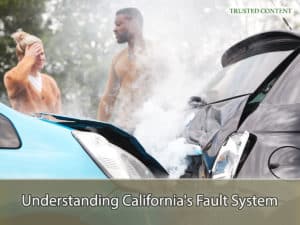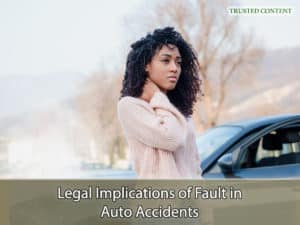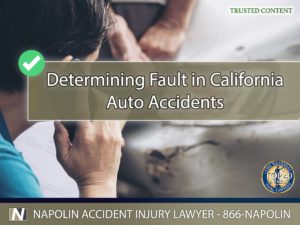The Process of Determining Fault in Ontario, California Auto Accidents
In California, determining fault after an auto accident is a critical step that influences the legal and insurance outcomes for all parties involved. The state's approach to fault determination is grounded in the principle of comparative negligence, which allows for a detailed examination of each party's actions leading up to the accident. This process is intricate, involving the collection of evidence, legal interpretation, and often, negotiations between involved parties.

Understanding California's Fault System
Understanding California's Fault System
California's legal system uses a “pure comparative negligence” model to assess fault in auto accidents. This framework is designed to allocate responsibility proportionally among all involved parties based on their contribution to the accident. Unlike in some states where a slight degree of fault can bar recovery, in California, a party can recover damages even if they are found to be 99% at fault, although their recovery would be reduced by their degree of fault.
The Role of Evidence in Fault Determination
Gathering Evidence at the Scene
The immediate aftermath of an auto accident is a crucial time for evidence collection. Photographs of the vehicles' positions, damage, and any road signs or signals can be pivotal. Witness statements can also provide unbiased accounts of the events. Additionally, the police report, which includes the responding officer's observations and any citations issued, is a key document in establishing fault.
Use of Expert Testimonies
Expert witnesses, such as accident reconstruction specialists, can offer professional insights into how and why the accident occurred. Their analyses often involve reviewing the physical evidence, vehicle telemetry data (if available), and the patterns of damage to reconstruct the accident scene. This expert testimony can be crucial in complex cases where the fault is not immediately apparent.
Insurance Companies and Fault Assessment
Insurance companies play a significant role in the fault determination process. Each party's insurance company conducts an independent investigation to assess fault, reviewing the evidence, legal reports, and statements from their policyholder and the other parties involved. These assessments are crucial as they influence the initial offers for settlement. However, it's important to remember that these determinations are not final and can be challenged.

Legal Implications of Fault in Auto Accidents
Legal Implications of Fault in Auto Accidents
The determination of fault directly impacts the financial responsibility for damages and injuries sustained in the accident. Under California's comparative negligence system, an individual's financial compensation is adjusted based on their percentage of fault. This means that understanding and effectively arguing the degrees of fault is essential for ensuring fair compensation.
Seeking Legal Assistance
Given the complexities involved in determining fault and negotiating with insurance companies, seeking legal assistance is often in the best interest of accident victims. An experienced attorney can help in accurately presenting your case, negotiating settlements, and, if necessary, pursuing litigation to ensure fair compensation. Legal professionals are also adept at navigating the nuances of California's comparative negligence system to advocate for their clients' best interests.

The Process of Determining Fault in Ontario, California Auto Accidents
The Process of Determining Fault in Ontario, California Auto Accidents
The process of determining fault in California auto accidents is a nuanced and complex legal matter that requires thorough investigation, evidence collection, and expert analysis. Given the significant impact that fault determination can have on the outcome of insurance claims and legal proceedings, individuals involved in auto accidents are encouraged to seek professional legal assistance. At Napolin Accident Injury Lawyer, we are committed to providing our clients with the knowledgeable support and advocacy needed to navigate these challenging situations. If you've been involved in an auto accident in California and need legal assistance, call us at (909) 962-8415 for a free consultation to discuss your case and how we can help you on your path to recovery.
